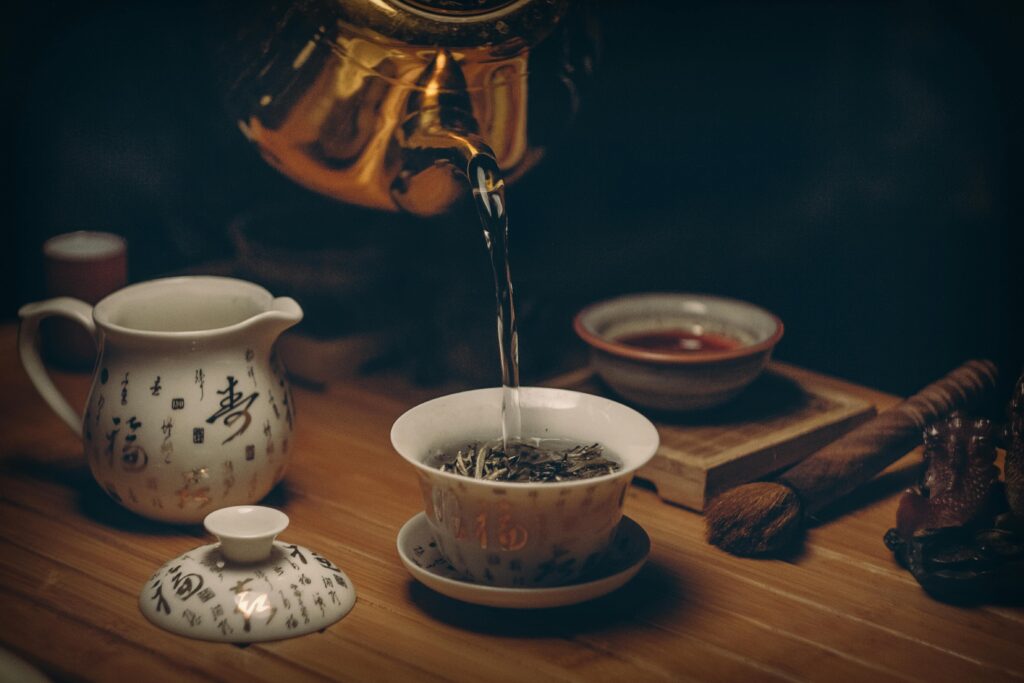
Tea has been a cornerstone of wellness for centuries, cherished for its calming qualities, health benefits, and rich history. Organic tea, free of harmful chemicals and pesticides, offers a cleaner, more natural path to better health. But what makes organic tea so special? Let’s dive into the world of organic tea, uncover its unique benefits, and learn how to enjoy it the right way.
Why Choose Organic Tea?
Organic tea is grown without synthetic fertilizers, pesticides, or genetically modified organisms (GMOs). This not only supports a healthier planet but also ensures your cup is free of potentially harmful residues, offering a purer and more flavorful experience.
The Benefits of Different Types of Organic Tea
1. Green Tea: The Antioxidant Powerhouse
- Key Benefits:
- Rich in catechins, which boost metabolism and aid in fat burning.
- Supports heart health and reduces bad cholesterol.
- Enhances brain function with natural caffeine and L-theanine.
- Packed with antioxidants that protect against aging and chronic diseases.
- Best Time to Drink: Morning or early afternoon for a gentle energy boost.
- My personal pick for green tea comes from iMoZai Tea Company https://amzn.to/3WBbn4F (aff)
2. Black Tea: Energy and Heart Health
- Key Benefits:
- Higher caffeine content helps increase alertness and focus.
- Reduces the risk of stroke and improves heart health.
- Contains polyphenols that support gut health and digestion.
- Best Time to Drink: Mid-morning or early afternoon to avoid disrupting sleep.
- Check out black tea from Organic Positively Tea Company https://amzn.to/4hz25ht (aff)
3. White Tea: Skin and Immunity Booster
- Key Benefits:
- Delicate yet loaded with antioxidants for radiant skin.
- Strengthens the immune system.
- May help reduce insulin resistance and support weight loss.
- Best Time to Drink: Late morning or mid-afternoon for hydration and skin benefits.
- Thinking about trying white tea? Get it from Imozai, US company, https://amzn.to/40S0r5a (aff)
4. Herbal Teas: Soothing and Restorative
- Popular Choices and Benefits:
- Chamomile: Promotes relaxation and better sleep.
- Peppermint: Eases digestive discomfort and freshens breath.
- Ginger: Relieves nausea and supports the immune system.
- Rooibos: Reduces inflammation and supports skin health.
- Best Time to Drink: Evening or before bed, depending on the blend.
- One of the best selection of herbal teas are made by Traditional Medicinals https://amzn.to/4jyevbo (aff)
5. Oolong Tea: The All-Rounder
- Key Benefits:
- Combines the benefits of green and black teas.
- Supports weight management by boosting metabolism.
- Improves dental health and strengthens bones.
- Best Time to Drink: Afternoon to enhance focus and digestion.
- Get organic oolong tea from iMoZai https://amzn.to/4hzYlwh (aff)
Hot Tea vs. Iced Tea: Which Is Better?
Both hot and iced tea offer health benefits, but their effectiveness can vary slightly:
- Hot Tea:
- Iced Tea:
- Hydrating and refreshing, especially in hot weather.
- Still retains many antioxidants if brewed properly and cooled.
- Less effective for digestion but perfect for hydration and energy.
Tip: Avoid pre-made bottled iced teas, which often contain added sugars and preservatives. Opt for freshly brewed and chilled tea instead.
The Benefits of Adding Lemon, Honey, and Other Condiments
- Lemon:
- Boosts vitamin C, enhancing immunity.
- Aids in detoxification and digestion.
- Adds a refreshing, tangy flavor.
- Honey:
- Natural sweetener with antibacterial properties.
- Soothes sore throats and reduces coughs.
- Provides quick energy and a subtle floral taste.
- Mint Leaves:
- Calms the stomach and aids digestion.
- Adds a cooling, invigorating flavor.
- Ginger:
- Anti-inflammatory and immune-boosting.
- Relieves nausea and supports circulation.
- Cinnamon:
- Helps regulate blood sugar levels.
- Adds warmth and a natural sweetness to the tea.
- Turmeric:
- Contains curcumin, a powerful anti-inflammatory compound.
- Pairs well with black or herbal teas.
How Much Tea Should You Drink Daily?
Moderation is key. For most teas, 2–4 cups a day are ideal to reap the health benefits without overdoing caffeine. Herbal teas can be consumed more liberally, as they are typically caffeine-free.
The Perfect Cup: How to Properly Prepare Organic Tea
- Choose Quality Tea: Opt for loose-leaf organic tea for a more flavorful and nutrient-rich experience.
- Use Fresh Water: Avoid distilled or pre-boiled water for the best taste.
- Steep the Right Way:
- Green Tea: 2–3 minutes at 175°F (80°C).
- Black Tea: 3–5 minutes at 200°F (93°C).
- Herbal Tea: 5–7 minutes at 210°F (99°C).
- White Tea: 2–3 minutes at 185°F (85°C).
- Avoid Over-Steeping: Over-steeping can make the tea bitter and affect its delicate flavors.
- Enhance Naturally: Add condiments like lemon, honey, or ginger for both flavor and health benefits.
Wrap-Up: A Cup of Health in Every Sip
Organic tea is more than just a beverage; it’s a journey into wellness and self-care. Whether hot or iced, sweetened with honey, or brightened with lemon, tea offers a versatile way to enhance your daily routine. By understanding its benefits and brewing it with care, you can transform a simple ritual into a powerful health habit. So, steep, sip, and savor your way to a healthier you!
